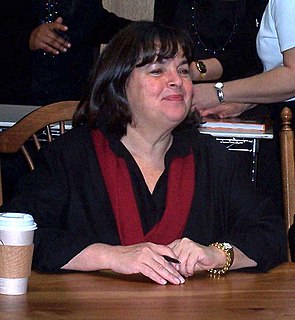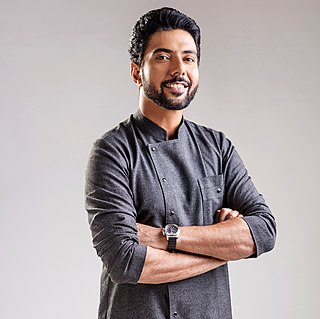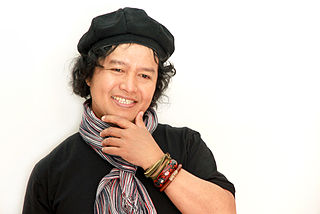A Quote by Joel Salatin
Even if you don't eat at a fast food restaurant, you're now eating food that's produced by this system.
Related Quotes
I think there are two ways of eating, or cooking. One is restaurant food and one is home food. I believe that people have started making food that is easy that you want to eat at home. When you go out to a restaurant, you want to be challenged, you want to taste something new, you want to be excited. But when you eat at home, you want something that's delicious and comforting. I've always liked that kind of food - and frankly, that's also what I want to eat when I go out to restaurants, but maybe that's me.
Imagine if we had a food system that actually produced wholesome food. Imagine if it produced that food in a way that restored the land. Imagine if we could eat every meal knowing these few simple things: What it is we're eating. Where it came from. How it found its way to our table. And what it really cost. If that was the reality, then every meal would have the potential to be a perfect meal.
I think Americas food culture is embedded in fast-food culture. And the real question that we have is: How are we going to teach slow-food values in a fast-food world? Of course, its very, very difficult to do, especially when children have grown up eating fast food and the values that go with that.
I think America's food culture is embedded in fast-food culture. And the real question that we have is: How are we going to teach slow-food values in a fast-food world? Of course, it's very, very difficult to do, especially when children have grown up eating fast food and the values that go with that.
The American fast food diet and the meat eating habits of the wealthy around the world support a world food system that diverts food resources from the hungry. A diet higher in whole grains and legumes and lower in beef and other meat is not just healthier for ourselves but also contributes to changing the world system that feeds some people and leaves others hungry.
Those of us who think about what we eat, how it's grown, those of us who care about the environmental impact of food - we've been educated by fabulous books, like Fast Food Nation and documentaries like Food Inc. But despite these and other great projects that shine a critical light on the topic, every year the food industry spends literally tens of millions of dollars to shape the public conversation about our food system.


































